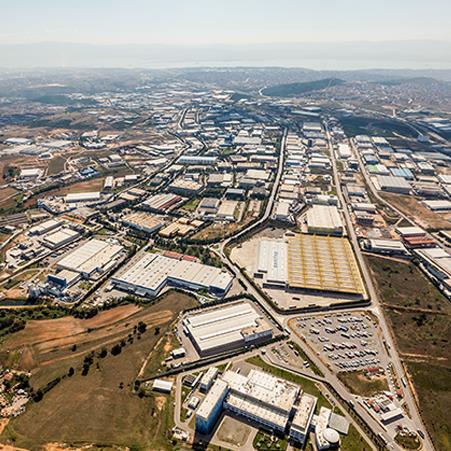Rabat - The Moroccan government approved a decree to expand the “Tangier Automotive City” (TAC) in the export Free Zone during their weekly cabinet meeting on Thursday.
The project aims to meet the rising demand from industrial investors. It was submitted by Mohcine Jazouli, the Minister Delegate in charge of Investment, Convergence, and the Evaluation of Public Policies, on behalf of Ryad Mezzour, the Minister of Industry and Trade.
The new decree, No. 2.24.657, modifies the original decree from April 20, 2011, which first established the free zone. The expansion will increase the area of the current zone from 517 hectares to 1,185 hectares, nearly doubling its size to accommodate growing investor interest in the region.
Mustapha Baitas, government spokesperson and Minister Delegate in charge of Relations with Parliament, highlighted the importance of this expansion during a press briefing. He emphasized that the expansion is critical to support the ongoing industrial developments and attract more global companies to Tangier, and solidify its role as a key automotive hub in Africa.
The TAC has been instrumental in positioning Morocco as a major player in the automotive manufacturing sector, as well as fostering economic growth and boosting exports.
The industrial zone is located within the Tangier-Mediterranean Free Zone (TFZ), which includes various industrial and logistical areas centered around the Tangier Med port; one of Africa’s largest and most important shipping hubs.
The zone’s primary focus is on attracting global automotive manufacturers, suppliers, and related industries.
The zone is situated close to the Tangier Med port, which provides companies easy access to European, African, and international markets. Its proximity to Europe, just across the Strait of Gibraltar, makes it an ideal location for manufacturers looking to export to the EU.
The free zone also boasts modern infrastructure, with well-developed transportation networks, including road, rail, and port connections.
It is additionally home to major automotive companies, including Renault and other suppliers that support the automotive value chain.
The project aims to meet the rising demand from industrial investors. It was submitted by Mohcine Jazouli, the Minister Delegate in charge of Investment, Convergence, and the Evaluation of Public Policies, on behalf of Ryad Mezzour, the Minister of Industry and Trade.
The new decree, No. 2.24.657, modifies the original decree from April 20, 2011, which first established the free zone. The expansion will increase the area of the current zone from 517 hectares to 1,185 hectares, nearly doubling its size to accommodate growing investor interest in the region.
Mustapha Baitas, government spokesperson and Minister Delegate in charge of Relations with Parliament, highlighted the importance of this expansion during a press briefing. He emphasized that the expansion is critical to support the ongoing industrial developments and attract more global companies to Tangier, and solidify its role as a key automotive hub in Africa.
The TAC has been instrumental in positioning Morocco as a major player in the automotive manufacturing sector, as well as fostering economic growth and boosting exports.
The industrial zone is located within the Tangier-Mediterranean Free Zone (TFZ), which includes various industrial and logistical areas centered around the Tangier Med port; one of Africa’s largest and most important shipping hubs.
The zone’s primary focus is on attracting global automotive manufacturers, suppliers, and related industries.
The zone is situated close to the Tangier Med port, which provides companies easy access to European, African, and international markets. Its proximity to Europe, just across the Strait of Gibraltar, makes it an ideal location for manufacturers looking to export to the EU.
The free zone also boasts modern infrastructure, with well-developed transportation networks, including road, rail, and port connections.
It is additionally home to major automotive companies, including Renault and other suppliers that support the automotive value chain.

